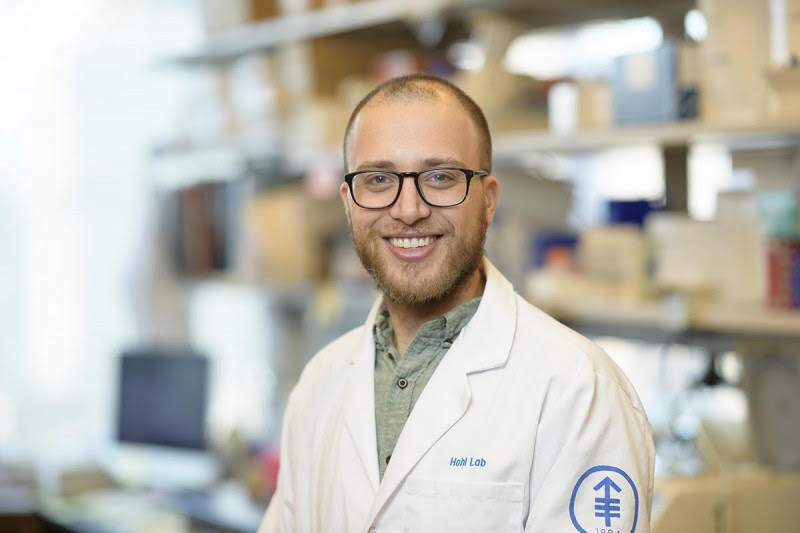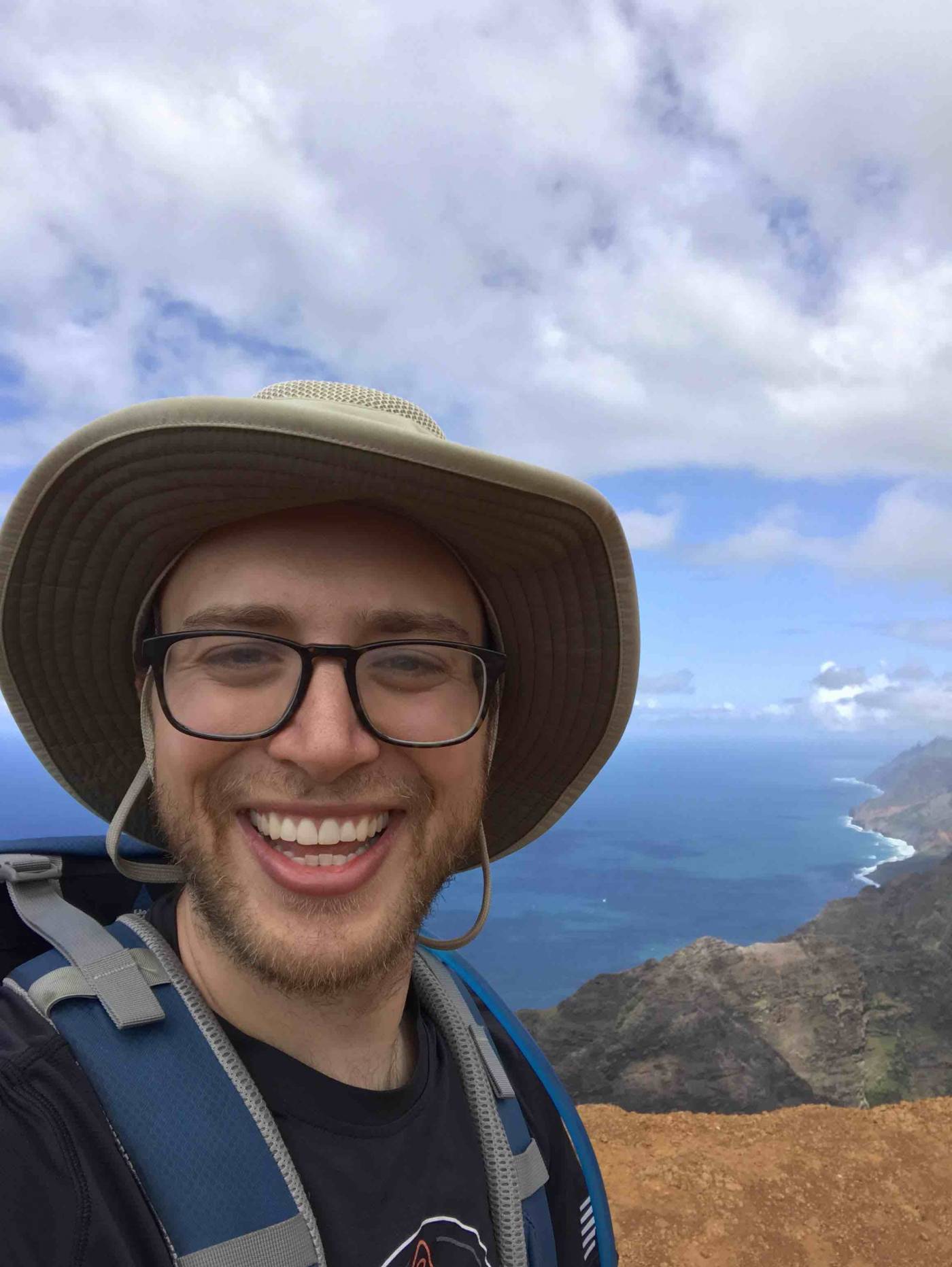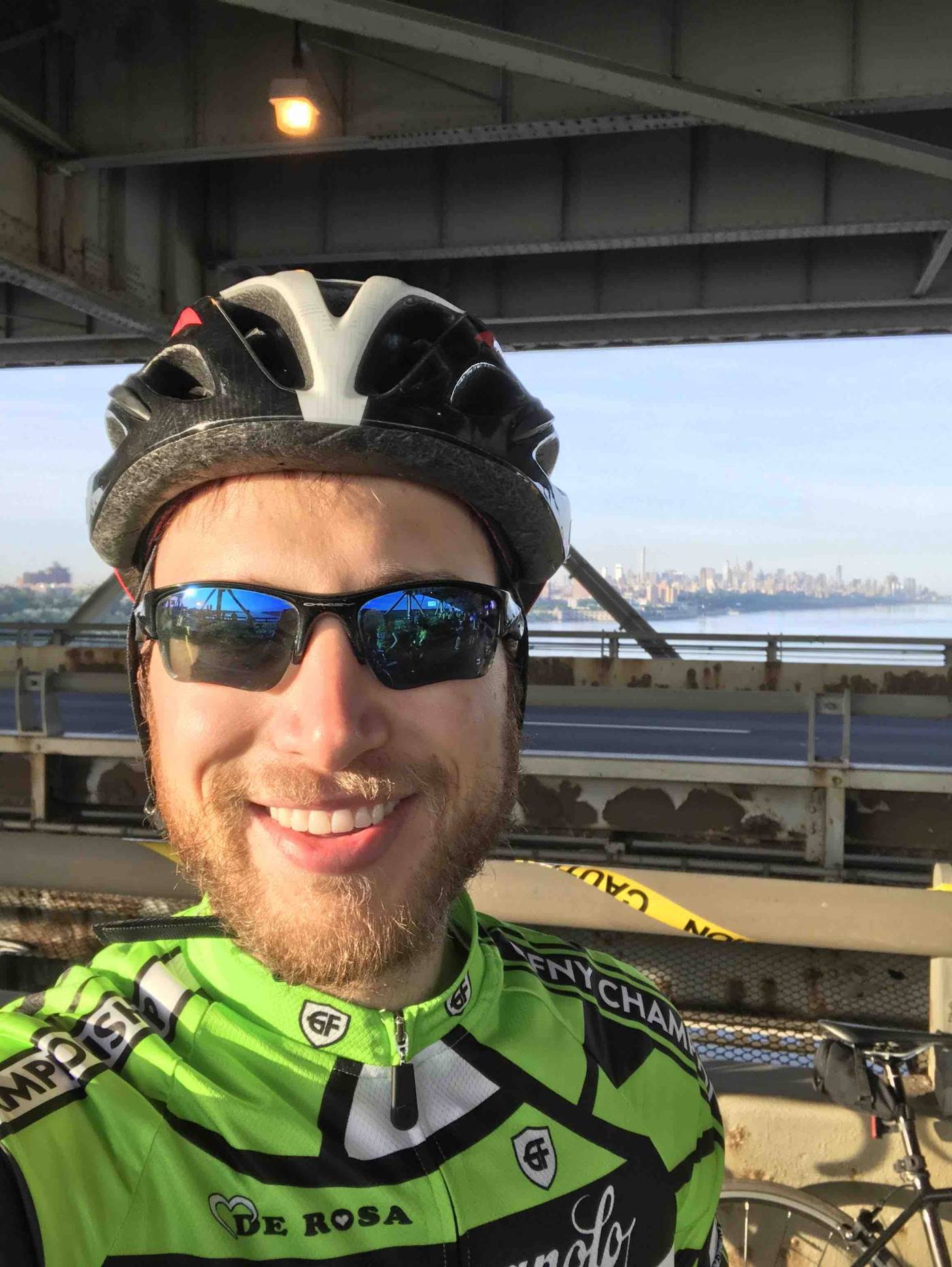Benjamin Tischler
Outside of the lab, Ben explores the outdoors (via biking, hiking and running) of New York and the surrounding areas. 1-2x per year, he can be found backpacking at the national parks!

Benjamin is a graduate student at Memorial Sloan Kettering Cancer Center where he specializes in Immunology and Infectious Disease research.
Benjamin grew in Vancouver, British Columbia. In contrast to New York City, Benjamin describes Vancouver as, “a much smaller city, with much more greenery and nature”. Although the quality of sushi in New York City and Vancouver is comparable, New York City trails behind Vancouver in its transit system and accessible outdoor pursuits. Benjamin originally moved to New York City in 2009 to pursue his undergraduate degree at Columbia University. Although he planned to move back to Vancouver after his graduation—due to his longing for “the outdoor pursuits available in Vancouver”, he ended up staying in the city after meeting his wife and embarking on his graduate career.

What’s your favorite thing about being a scientist? Did you always want to be a scientist?
“My favourite thing about being a scientist is that I’m at the forefront of human knowledge. When I make a discovery, in the 20 minutes between when I’ve analyzed the data and talked about it with my boss, I am the only person in the world who knows that information. It’s kind of an addicting feeling. I actually wanted to be a medical doctor for the first 23 years of my life, but after some positive lab experiences that I took on while preparing my medical school resume, I decided to pursue research.”
Can you think of a specific time when you found science or pursuing science challenging?
“It’s hard to think of a specific time, because Hollywood doesn’t tell you that science is 99.9999% failure and 0.0001% eureka moments. The largest challenge of being a scientist is simply staying focused and motivated when all your experiments fail or your data are negative. Working at MSK helps me keep my work in perspective because every day I see the need for the work I’m doing.”
If you could give one piece of advice to young scientists or students, what would it be?
“There is life outside the lab! Of course your work is important, but you can’t work 100 hours a week and expect to cure cancer. Your brain and body need regular breaks: a walk in the park, happy hour with friends, or dinner with a loved one can do wonders for your mental health, which in turn can lead to increased productivity and motivation when you get back to the lab.”
Have you ever made something explode or otherwise wildly go wrong in lab?
“In my freshman year general chemistry lab class, I learned first hand why you add acid to water and not vice versa. I added water to concentrated nitric acid, and the whole thing started to turn brown, bubble. and smoke. Luckily nothing major happened and it gave me something to write about in an otherwise unremarkable report.”

If you hadn’t pursued science, what would you have done instead?
“It’s hard to say – I’d wanted to be an MD for most of my life, and science was initially a means to an end. I almost stumbled into it. Right now I’m pursuing consulting (life science or generalist), which I didn’t even realize was a career option open to people with a BSc degree, so perhaps I would have come around earlier.”
Why did you decide to come to NYC?
“I came to the city in 2009 for my undergrad, and had every plan to leave as soon as I was finished at Columbia. I missed the outdoors pursuits available in Vancouver and other western cities. But, I met my now wife in college, decided to stay, applied to grad school, and here we are!”
What is the funniest/strangest thing you have seen in NYC?
“Probably cats being walked on leashes in Central Park.”

One of the reasons I went into science was the joy of discovery, and that motivates me to explore the wonderful world in which we live beyond what’s under the microscope.
When you are done training, do you plan to stay in NYC?
“When you leave New York, you are astonished at how clean the rest of the world is. Clean is not enough.” – Fran Lebowitz”
If you were a lab animal/model organism, which would you be and why?
“A beagle, because who doesn’t like to snuggle?”
Do you want to share anything else?
“Surround yourself with good mentors and colleagues. A strong culture produces happier trainees, and higher quality work.”
If the building was burning, what single item would you grab as you ran out the door and why?
“Assuming this is referring to the building in which I work, I would grab my lab notebook. Most of my computer data is backed up in a cloud server, but I wouldn’t want to lose anything that hadn’t been digitized and have to start the project fresh.”
